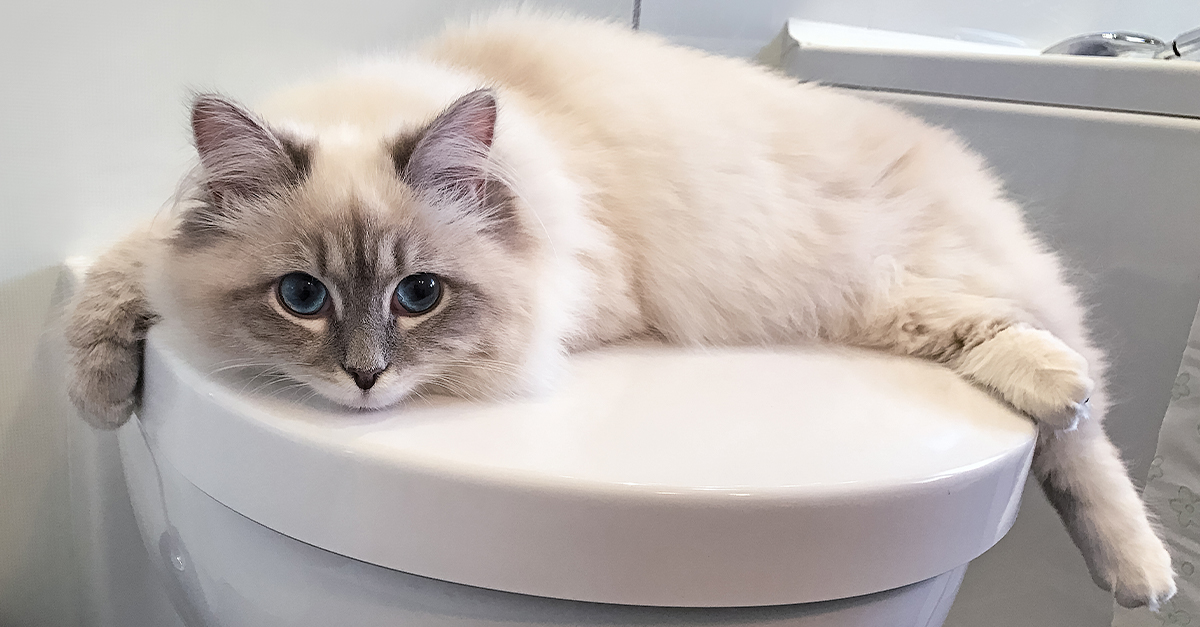Why You Shouldn't Flush Cat Poop Down Your Toilet - Preserve Your Pipe Health
Why You Shouldn't Flush Cat Poop Down Your Toilet - Preserve Your Pipe Health
Blog Article
Just how do you really feel with regards to How to Dispose of Cat Poop and Litter Without Plastic Bags?

Intro
As cat owners, it's important to be mindful of how we dispose of our feline close friends' waste. While it might appear convenient to flush cat poop down the bathroom, this method can have detrimental repercussions for both the atmosphere and human health and wellness.
Alternatives to Flushing
Fortunately, there are more secure and a lot more accountable ways to get rid of feline poop. Consider the complying with alternatives:
1. Scoop and Dispose in Trash
The most usual approach of disposing of cat poop is to scoop it right into an eco-friendly bag and throw it in the trash. Make certain to make use of a devoted trash scoop and get rid of the waste quickly.
2. Use Biodegradable Litter
Choose eco-friendly feline litter made from materials such as corn or wheat. These clutters are eco-friendly and can be securely disposed of in the garbage.
3. Hide in the Yard
If you have a lawn, take into consideration hiding pet cat waste in an assigned area away from vegetable gardens and water sources. Make sure to dig deep sufficient to prevent contamination of groundwater.
4. Mount a Pet Waste Disposal System
Purchase a family pet waste disposal system particularly made for cat waste. These systems make use of enzymes to break down the waste, reducing smell and ecological influence.
Wellness Risks
Along with ecological worries, flushing feline waste can additionally present health and wellness risks to humans. Cat feces may have Toxoplasma gondii, a bloodsucker that can trigger toxoplasmosis-- a potentially serious health problem, especially for expectant females and people with damaged immune systems.
Environmental Impact
Purging feline poop introduces unsafe microorganisms and parasites into the water system, presenting a significant threat to water ecological communities. These pollutants can negatively influence marine life and concession water high quality.
Conclusion
Liable pet ownership expands beyond offering food and shelter-- it additionally involves appropriate waste monitoring. By refraining from purging cat poop down the commode and opting for alternative disposal approaches, we can reduce our environmental footprint and secure human wellness.
Why You Should Never Flush Cat Poop Down the Toilet
A rose by any other name might smell as sweet, but not all poop is created equal. Toilets, and our sewage systems, are designed for human excrement, not animal waste. It might seem like it couldn’t hurt to toss cat feces into the loo, but it’s not a good idea to flush cat poop in the toilet.
First and foremost, assuming your cat uses a litter box, any waste is going to have litter on it. And even the smallest amount of litter can wreak havoc on plumbing.
Over time, small amounts build up, filling up your septic system. Most litter sold today is clumping; it is made from a type of clay that hardens when it gets wet. Ever tried to scrape old clumps from the bottom of a litter box? You know just how cement-hard it can get!
Now imagine just a small clump of that stuck in your pipes. A simple de-clogger like Drano isn’t going to cut it. And that means it’s going to cost you big time to fix it.
Parasitic Contamination
Believe it or not, your healthy kitty may be harboring a nasty parasite. Only cats excrete Toxoplasma in their feces. Yet it rarely causes serious health issues in the cats that are infected. Most people will be fine too if infected. Only pregnant women and people with compromised immune systems are at risk. (If you’ve ever heard how women who are expecting are excused from litter cleaning duty, Toxoplasma is why.)
But other animals may have a problem if infected with the parasite. And human water treatment systems aren’t designed to handle it. As a result, the systems don’t remove the parasite before discharging wastewater into local waterways. Fish, shellfish, and other marine life — otters in particular — are susceptible to toxoplasma. If exposed, most will end up with brain damage and many will die.
Depending on the species of fish, they may end up on someone’s fish hook and, ultimately on someone’s dinner plate. If that someone has a chronic illness, they’re at risk.
Skip the Toilet Training
We know there are folks out there who like to toilet train their cats. And we give them props, it takes a lot of work. But thanks to the toxoplasma, it’s not a good idea.

I was introduced to that report on Don’t flush cat feces down the toilet from someone on a different website. Don't hesitate to set aside a second to distribute this article if you appreciated it. Thank you for your time. Kindly pay a visit to our blog back soon.
Schedule And Pricing Report this page